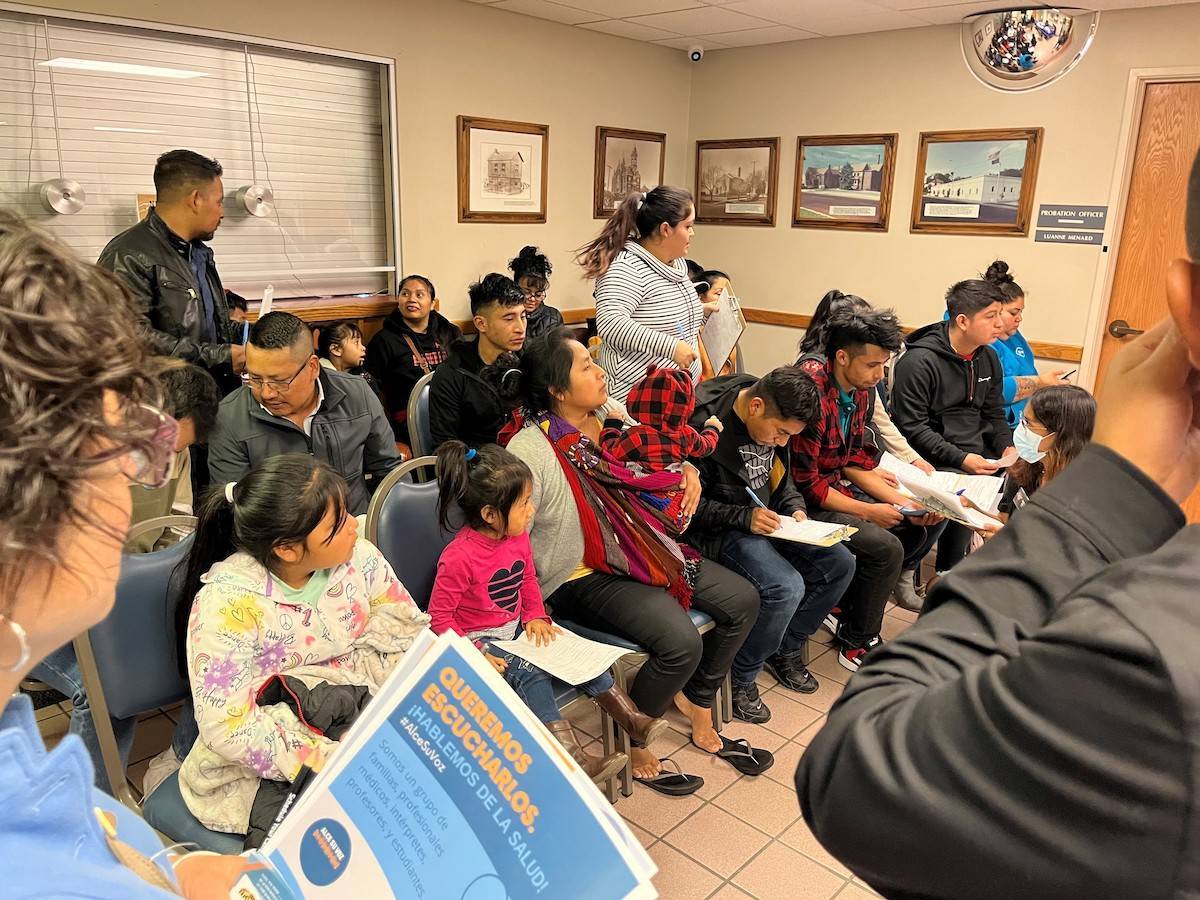Wichita State University’s efforts to improve vaccine equity are reaching throughout Kansas with the Increase the Reach grant program.
In recent months, the community engagement phase of the Vaccine Equity for Guatemalan Indigenous Communities project took Wichita State representatives to places such as Coffeyville, Arkansas City and Dodge City. They represent Alce Su Voz (Spanish for “speak out”), a coalition of Spanish-speaking Latinx families, interpreters, health care providers, community leaders and university faculty and students whose mission is to improve health equity for Spanish speakers and speakers of indigenous languages in Kansas.
“This is critically important due to the changing demographics of our state,” said Monique Garcia, community initiatives manager for the Public Policy and Management at WSU. “We have a lot of opportunity to engage with these communities and recognize the existence of barriers and be proactive to remove barriers so these folks are able to access quality health care.”
In 2022, Alce Su Voz received a $250,000 grant from Increase the Reach for a vaccine equity project for indigenous communities from Guatemala in Kansas from the Centers for Disease Control and Prevention and a $375,000 grant from the Office of Minority Health of the U.S. Department of Health and Human Services for the first year of a three-year project to improve health care language access for Spanish speakers in Kansas.
Funding is administered by Wichita State’s Community Engagement Institute. Alce Su Voz received one of many Increase the Reach awards for different communities in Kansas. WSU is also contributing to vaccine equity by administering these awards on behalf of KDHE.
Social determinants influence a person’s health. Factors such as birthplace, workplace and health care policies may be out of an individual’s control. Interactions with medical personnel and health care systems, influenced by race and language, may also fit in this category. Language, education, citizenship and transportation barriers can affect a person’s health care outcomes, Garcia said.
Many of the Spanish speakers in these communities come to Kansas to work in agribusiness, such as meatpacking, feed lots and dairies, and manufacturing.
“If you look at a person’s ZIP code that they are born in, it will reveal a tremendous amount of information on that person’s ability to succeed in education, to access quality health care,” Garcia said.
In December, Garcia, Dr. Rachel Showstack associate professor in the Department of Modern and Classical Languages and Literatures, and Courtney Hayden, Kansas Department of Health and Environment Equity Assistance liaison and coordinator, traveled to southeast Kansas.
Montgomery, Cowley, Ford, Finney and Seward counties are home to Guatemalan people who speak Mayan languages. Wichita State’s efforts to help include collaboration from the PPMC, College of Health Professions and the Fairmount College of Liberal Arts and Sciences.
Cultural competence and cultural sensitivity are important parts of the outreach and engagement work by the coalition. Educating doctors, nurses and other health care professionals on the need for qualified interpreters and understanding of cultural differences is part of the mission, Showstack said.
“A big part of that is listening and not assuming you know how a particular family talks about and thinks about health care and well-being,” she said. “That’s also important in health care interactions as well, not to make any assumptions about people’s cultural perspectives.”


 Courtesy photo
Courtesy photo